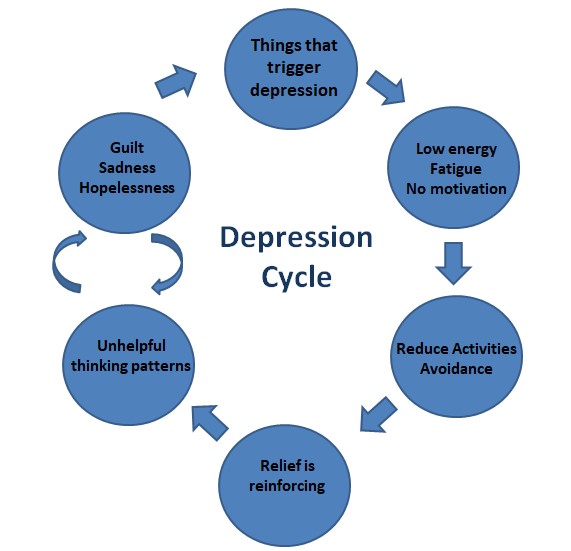The Depression Spiral
Depression starts with a sustained pattern that starts with us lacking motivation to do the things that we used to enjoy. This results in us being more likely to be less active. We may start with skipping exercise, not engaging in a hobby, or deciding not to go out with friends. The problem with doing so is that reducing activities that are meaningful to us over time usually has the effect of making us feel worse. The more we choose to forego things we enjoy, we have fewer opportunities to experience positive things. Over time, lowered activity levels tend to lead to kids feeling lousier about themselves, which leads to lower activity level.

The Trap of Waiting To Feel Better
Our goal is to reverse the depression spiral by behaving in the opposite manner. If we increase the frequency of valued activities, activity level increases, our mood is also likely to increase, which turns into a positive spiral. But, children experience a great deal of inertia with depression. Children feel unmotivated, and the tendency is to wait to feel better.
But, in depression, our mood is not working properly, and tells us to avoid. Avoidance makes us feel worse about ourselves, causes us to think bad things about ourselves, further results in us doing even less, and feeling even worse.
Doing valued activities
Now, our job is to plan to complete valued and meaningful activities. We know that if we ask our mood, it is likely to say "No". So, we do the activities that we used to love, even if we feel unmotivated. As we engage in those activities, we learn to re-evaluate and dismantle the negative beliefs that we have gradually built up, and learn to focus on functioning better.
Now, let's start a plan to feel better by doing a self-assessment of our mood and feelings.